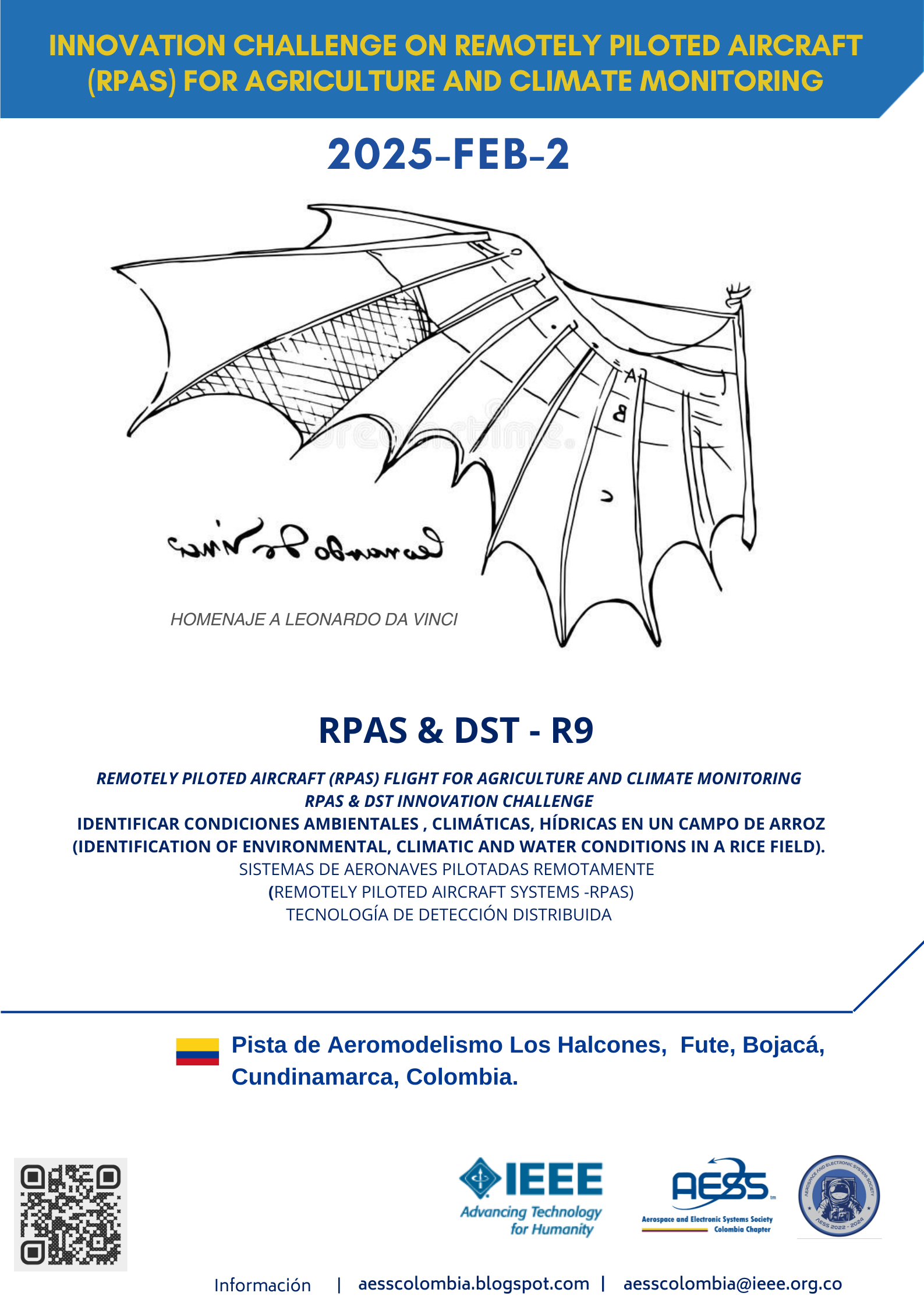RPAS Remotely Piloted Aircraft Innovation Challenge for Agriculture and Climate Monitoring
CALL to flight piloted aircraft systems (RPAS) that address critical challenges in agriculture and climate monitoring; on February 2, 2025.
CALL to flight piloted aircraft systems (RPAS) that address critical challenges in agriculture and climate monitoring; on February 2, 2025.
Date and Time
Location
Hosts
Registration
- Date: 02 Feb 2025
- Time: 09:00 AM to 03:00 PM
- All times are (UTC-05:00) Bogota
-
 Add Event to Calendar
Add Event to Calendar
- Variante Soacha-La Mesa
- Airstrip - Los Halcones
- Fute, Bojacá, Cundinamarca, Colombia, Distrito Capital de Bogota
- Colombia
- Building: Pista de Aeromodelismo los Halcones
- Click here for Map
- Starts 20 November 2024 05:00 PM
- Ends 30 January 2025 04:00 PM
- All times are (UTC-05:00) Bogota
- No Admission Charge
Speakers
Mark of IEEE AESS
Foliage Penetration Radar
Biography:
Mark Davis has over 45 years experience in Government and Industry in developing technology and systems for Radar and Electronic Systems. In 2008 he established medavis consulting as a Sole Proprietorship, to assist in review and development of advanced sensor systems, with customers in Government, Industry and Small Businesses. He held senior management positions at DARPA as Deputy Director Information Exploitation Office (2006-08), Technical Director for Air Force Research Laboratory Space Based Radar Technology (1998-2006) and Program Manager in DARPA Information Systems Office for Counter CC&D technologies (1995-1998). Dr Davis also had senior Engineering and Program Management positions with General Electric Aerospace, and General Dynamics Missile Systems. His interests are in Radar and microwave system design, phased array antennas and adaptive signal processing. Dr Davis is a Life Fellow of the IEEE, a Fellow of the Military Sensing Symposia, and Chair of the IEEE Radar Systems Panel. Within the IEEE Aerospace and Electronics Systems Society, he has been a member of the Board of Governors (2008-2013) holding positions of VP of Conferences (2010-2012) and VP of Finance (2013). Dr Davis is currently serving on the US Air Force Scientific Advisory Board, and is a member of the NASA review board on earth resource monitoring. He has received a PhD in Physics from The Ohio State University, and Bachelor and Masters Degrees in Electrical Engineering from Syracuse University. In addition to these technical duties, he has published over 75 journal and conference papers on Radar and Microwave Systems. More recently, he has authored a book Foliage Penetration Radar - Detection and Characterization of Objects under Trees published by Scitech Publishing in March 2011, and a Chapter on Principals of Modern Radar on FOPEN.
Email:
Agenda
RPAS aircraft must fly and meet the following objectives:
1- Climate Change Monitoring:
Temperature and humidity mapping
Measurement of greenhouse gas emissions
Soil moisture monitoring
Forest health assessment
2- Precision Agriculture:
Crop health monitoring
Nutrient mapping
Detection of pests and diseases
Irrigation optimization
3- Prototype Requirements:
Load capacity: Be able to transport various sensors and equipment.
Flight autonomy: Sufficient flight time for extended missions.
Precision: High precision in data collection and autonomous navigation.
Adaptability: Ability to operate in different climatic and topographic conditions.
CALL to flight piloted aircraft systems (RPAS) that address critical challenges in agriculture and climate monitoring; on February 2, 2025.

